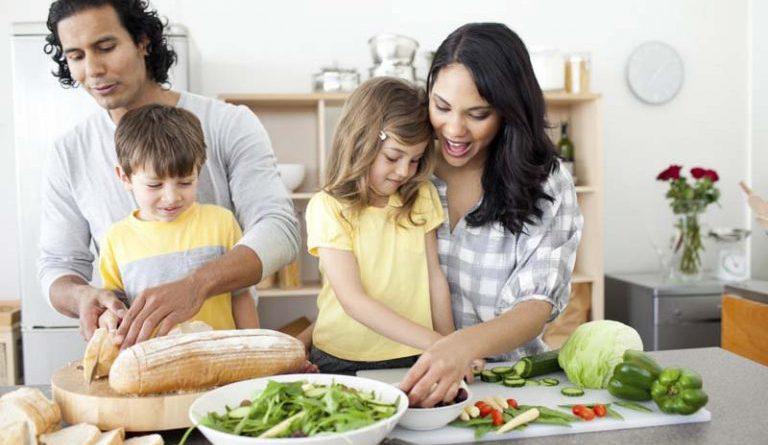Training children's independence from an early age not only helps them develop and perfect their personality but also helps them in the process of learning and practicing other skills later. At the Vietnamese-American dual diploma program, teachers always integrate this into experiential learning activities to practice independence and nurture a spirit of self-reliance and initiative for children. So how can parents and children practice this at home? Check out some suggestions below!
1. Self-cleaning and arranging personal areas:
Parents can guide their children to clean their own room or study corner, allowing them to arrange the number of necessary items themselves. This will help your child learn to manage personal belongings; develop logical thinking, and arrange furniture convenient for their own activities; Parents also better understand the needs and interests of their children. The family should plan a general cleaning of the house at the weekend, listen to the children's comments about the areas that need cleaning in the house, and discuss how to clean, tidy or refresh their house.

2. Classifying belongings/toys:
Sorting objects and toys is a very effective way of learning through games for young children. As a first step, parents should assign their children the task of classifying toys and objects: by color, size, shape, material, or use. Then you can guide your child to make a classification table by material, ..., count and compare the number of utensils and toys. This activity not only helps children explore the rich world of materials and uses, but also helps them practice counting, analysis, and comparison skills.
3. Assigning household chores appropriate to age:
Teaching children to do housework from a young age will have many positive effects on their development. Children who form this habit will learn to take responsibility for their actions, which is a necessary quality for children when growing up. This also helps children appreciate the value of labor and themselves, and help others.
What can children 2 to 4 years old do? Teach your children to throw their trash in the right place, prepare personal eating utensils, arrange toys or put dirty clothes in the basket, etc. From 4-6 years old, children can change clotheake their beds, set the table, sweepping and mopping, putting utensils in the right place. From 6 years old and up, parents can let children help in the kitchen, clean the bathroom, take out the trash, do the laundry and take care of the pets. Parents need to monitor when children work on their own to avoid possible danger.
4. Forming health care habits:
- Morning and evening habits of personal hygiene:
Practicing proper personal hygiene skills will help your baby avoid many infectious diseases such as flu; hand, foot and mouth disease; red eyes, etc. At the same time, it will help children develop civilized and polite habits from a young age.
Parents can create excitement for your child by: Using toothpaste with their favorite scent, a brush with a picture of your favorite animal ... let your child do it himself and praise him when he has tried and made efforts to maintain that skill regularly. Parents can create fun moments with their children when performing personal hygiene for children to enjoy and treat it as an experience: Use soap to form balls to play with children when washing hands, etc. The children will be very excited and willing to do it.
– Encourage and exercise with your children to improve physical fitness: The whole family does a morning exercise together from 5 to 10 minutes daily. When the child has memorized the action, parents can let children be the morning exercise instructor for the whole family or choose an exciting dance after morning gymnastics.
5. Cooking with your child:
Children can help their mothers with simple preliminary tasks such as picking and washing vegetables. This process gives children the opportunity to observe and distinguish vegetables through shapes, colors, names, etc. More skillfully, children can practice making simple dishes such as: pancakes, opla eggs, fried rice with vegetables, etc. Being able to make dishes with their own hands helps children to be more interested in the meal, and at the same time, have nutrition awareness for themselves.

6. Preparing own personal belongings when going out:
Allow your child to choose his or her outfit when going out. Give your child a small backpack, and encourage them to prepare necessary personal items such as hand towels, hand sanitizer, masks, water bottles, etc. When returning to school, parents encourage children to prepare uniforms, books, and learning tools to go to school every day. On long trips, parents should share the trip plan with their children so that they can prepare necessary clothes and items such as warm clothes, sunscreen, waterproof boots, etc. This activity helps children learn how to plan, self-manage their personal belongings; take responsibility for their own choices, and learn about self-management of personal belongings.













.png)




